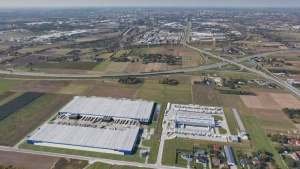
The topic of sustainability has become one of the most important megatrends of our time. Sustainable construction is also becoming increasingly important in the hotel real estate market, leading to an increase in demand for corresponding certificates in Austria, according to Christie & Co.
Yannick Herzberg, Senior Consultant at the hotel real estate expert Christie & Co in Vienna, studied the subject in detail for his master's thesis at MODUL University. During his research, he looked at a variety of hotel projects in Vienna and interviewed several of the most active hotel developers and owners in the industry. In summary, he says “the concept of sustainability in hotels has developed strongly in recent years and has moved beyond operations into the real estate aspect, further increasing the demand for sustainability certificates.”
A sustainability certificate for a hotel property is usually created from the development phase of the object. It involves evaluating up to 40 criteria to prove how sustainably the property was designed and built. The certificate is issued by various independent organizations, such as ÖGNB, DGNB or LEED.
Sustainability – a megatrend
The topic of sustainability has been more present in recent years than ever before. It is often considered to be a modern trend, although the origins of sustainability go back several decades. According to our current understanding, sustainability is primarily divided into three equally important areas: Social, environmental, and economic sustainability. Especially the ecological thought is often discussed in the business environment and is in the focus. “Since sustainability can only be considered as an overall concept, it is important that fundamental decisions take the concept of sustainability into account,” Herzberg emphasizes.
Sustainability for a hotel property
Sustainability is particularly important in the asset class “hotels” and begins with the project stage, as the consumption of resources in hotels is relatively high and has a decisive influence on its operations. Therefore, planning for the entirety of the property lifecycle is of great importance. The quality of the property, for example, has a very strong influence on its operation and sustainable profitable management right from the start. Among other things, the implementation of better materials, for example through better insulation, can reduce energy consumption and ensure the use of sustainable resources.
What is the added value of a sustainability certificate for a hotel property?
Along with a growing number of hotel projects, the number of certified hotels has also increased, which is reason enough to question the value of these certificates for developers, owners, and operators.
Especially for developers and owners, the certificate offers great added value in terms of quality control and usually results in a property that requires less investment in the medium- and long-term, as potential weak points are eliminated from the beginning. In addition, the certificate, which should be carried out in parallel with all other planning of the project, encourages re-evaluation. Modern technologies, higher-quality materials and more efficient equipment are considered during project development. In operation, a sustainability certificate also offers advantages to the operator, as modern equipment can lead to lower operating costs. “Basically, it was found that a certificate alone does not result in higher leases or purchase prices, but it does reduce the cost of energy and other resources,” Herzberg says. Since this cost reduction also trickles down to the operator, a sustainable property can lead to the operator performing more strongly as well.



